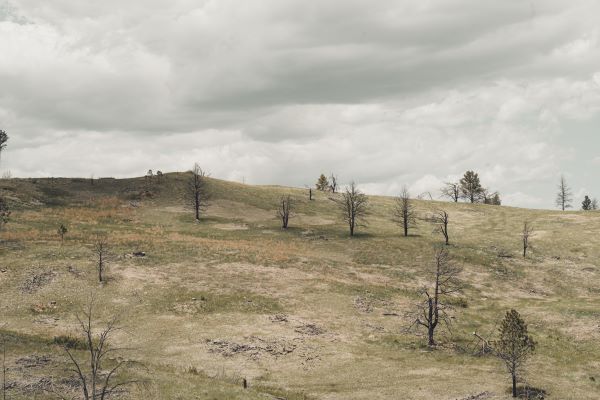Wildfires on African farms can be devastating, especially during the dry season when the lands are void of moisture. In East Africa, for example, the dry period often lasts from September to March in areas north of the Equator and from April to August south of the Equator. Interestingly, farming activities occur the most during these times of the year.
In an attempt to clear lands for farming and rid them of pests and diseases, farmers often set forests on fire because this method is less expensive. Another way wildfires can occur is through the effect of climate change, such as when severe weather conditions spark a fire in the forest.
Forest fires significantly contribute to soil erosion, deforestation and loss of biodiversity. However, farmers should protect their farmlands from such events because — aside from their adverse economic effects — they could further contribute to climate change.
How African Farmers Can Protect Their Lands From Wildfires
Wildfires cause a loss of biodiversity and contribute to environmental pollution. To prevent this, farmers can employ several steps to stop bushfires from taking place on their lands, as most human-started fires are accidental. One such method is putting a prevention plan in place.
Farmers should take precautions to reduce expensive losses before a fire threatens their lands. Families and employees who operate on farms and ranches should all be able to recognize potential fire threats and comprehend fundamental response strategies to stop or reduce property loss and personal injury. Some of the precaution methods include:
- Installing smoke detectors.
- Developing an escape plan.
- Placing fire extinguishers in visible and accessible locations.
- Keeping flammable objects far away from the farmlands.
- Discarding combustible materials appropriately.
However, preventing an inferno does not eliminate its likelihood on farmlands — it only reduces its probability. Farmers should remember that protecting human life must come before protecting any other property if a wildfire threatens a farm.
Farmers must exercise caution if they have time to evacuate their livestock. Some animals could refuse to leave and even retreat into a barn or building that is on fire. Farmers could shut all gates and open a window for fresh air — or escape — to prevent access to hazardous locations.
Wildfires are particularly dangerous for animals. Farmers should evaluate all animals exposed to smoke, heat and burns during a wildfire. Animals may need to be sprayed with water to help them cool off.
The definite aftermath of a farm inferno is severe damage to properties, especially farm produce and chemicals. When some substances get caught up in a fire incident, they could increase the fire’s intensity and even cause damage to humans and animals who have had close contact with it. It is vital to alert the appropriate authorities if dangerous materials are released during a forest fire or while suppressing it in order to minimize its impact on the environment.
Effect of Climate Change on Wildfires
Climate change contributes to the eruption of wildfires and vice versa, especially in regions susceptible to scorching weather conditions. Because this weather is quite common in Africa, there is a higher probability wildfire could emerge from the heat produced by flammable farm materials.
Burning plants emit dense, grey smoke into the atmosphere and elements in the smoke contribute to the heightened greenhouse effect. The rate of evaporation increases as the Earth’s temperature rises. More fires result from increased wildfire evaporation and forests become more explosive due to climate change brought on by humans.
There are many ways for people to lessen the environmental effects of wildfires and climate change. Farmers could anticipate a difference in the duration of fire seasons and an increase in the frequency and intensity of flames if they experience drought conditions or a long dry season, along with rising temperatures.
Africa is more prone to wildfires due to the lack of appropriate and sustainable management practices that could help combat fire accidents, especially in a climate-changing world. It is necessary to take action to monitor and control these flames. Keeping an eye out for a likely fire accident is crucial, but creating a regional alert system to help prevent potentially catastrophic wildfire effects is also essential.
Protect Farms From Wildfires
In protecting farms from forest fires, African farmers need to ensure preventive measures are in place while also paying attention to management procedures in case of a fire outbreak. These preventative and management methods will not only avert infernos on farmlands but also combat the effects of climate change.

Jane is an agriculture and environmental journalist and the founder and editor-in-chief of Environment.co, where she covers sustainability and eco-friendly living.









[…] Source link […]
Comments are closed.